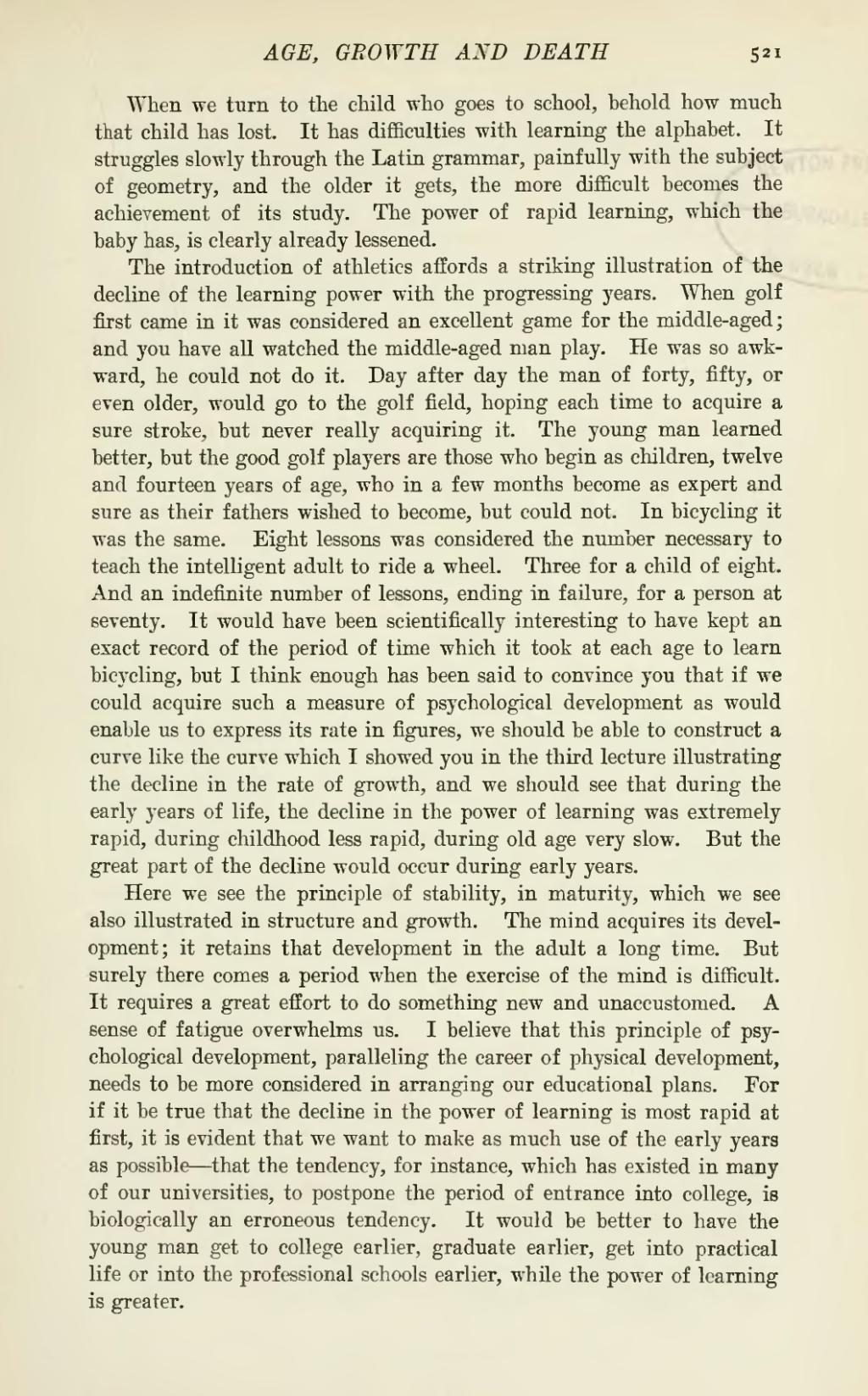When we turn to the child who goes to school, behold how much that child has lost. It has difficulties with learning the alphabet. It struggles slowly through the Latin grammar, painfully with the subject of geometry, and the older it gets, the more difficult becomes the achievement of its study. The power of rapid learning, which the baby has, is clearly already lessened.
The introduction of athletics affords a striking illustration of the decline of the learning power with the progressing years. When golf first came in it was considered an excellent game for the middle-aged; and you have all watched the middle-aged man play. He was so awkward, he could not do it. Day after day the man of forty, fifty, or even older, would go to the golf field, hoping each time to acquire a sure stroke, but never really acquiring it. The young man learned better, but the good golf players are those who begin as children, twelve and fourteen years of age, who in a few months become as expert and sure as their fathers wished to become, but could not. In bicycling it was the same. Eight lessons was considered the number necessary to teach the intelligent adult to ride a wheel. Three for a child of eight. And an indefinite number of lessons, ending in failure, for a person at seventy. It would have been scientifically interesting to have kept an exact record of the period of time which it took at each age to learn bicycling, but I think enough has been said to convince you that if we could acquire such a measure of psychological development as would enable us to express its rate in figures, we should be able to construct a curve like the curve which I showed you in the third lecture illustrating the decline in the rate of growth, and we should see that during the early years of life, the decline in the power of learning was extremely rapid, during childhood less rapid, during old age very slow. But the great part of the decline would occur during early years.
Here we see the principle of stability, in maturity, which we see also illustrated in structure and growth. The mind acquires its development; it retains that development in the adult a long time. But surely there comes a period when the exercise of the mind is difficult. It requires a great effort to do something new and unaccustomed. A sense of fatigue overwhelms us. I believe that this principle of psychological development, paralleling the career of physical development, needs to be more considered in arranging our educational plans. For if it be true that the decline in the power of learning is most rapid at first, it is evident that we want to make as much use of the early years as possible—that the tendency, for instance, which has existed in many of our universities, to postpone the period of entrance into college, is biologically an erroneous tendency. It would be better to have the young man get to college earlier, graduate earlier, get into practical life or into the professional schools earlier, while the power of learning is greater.

